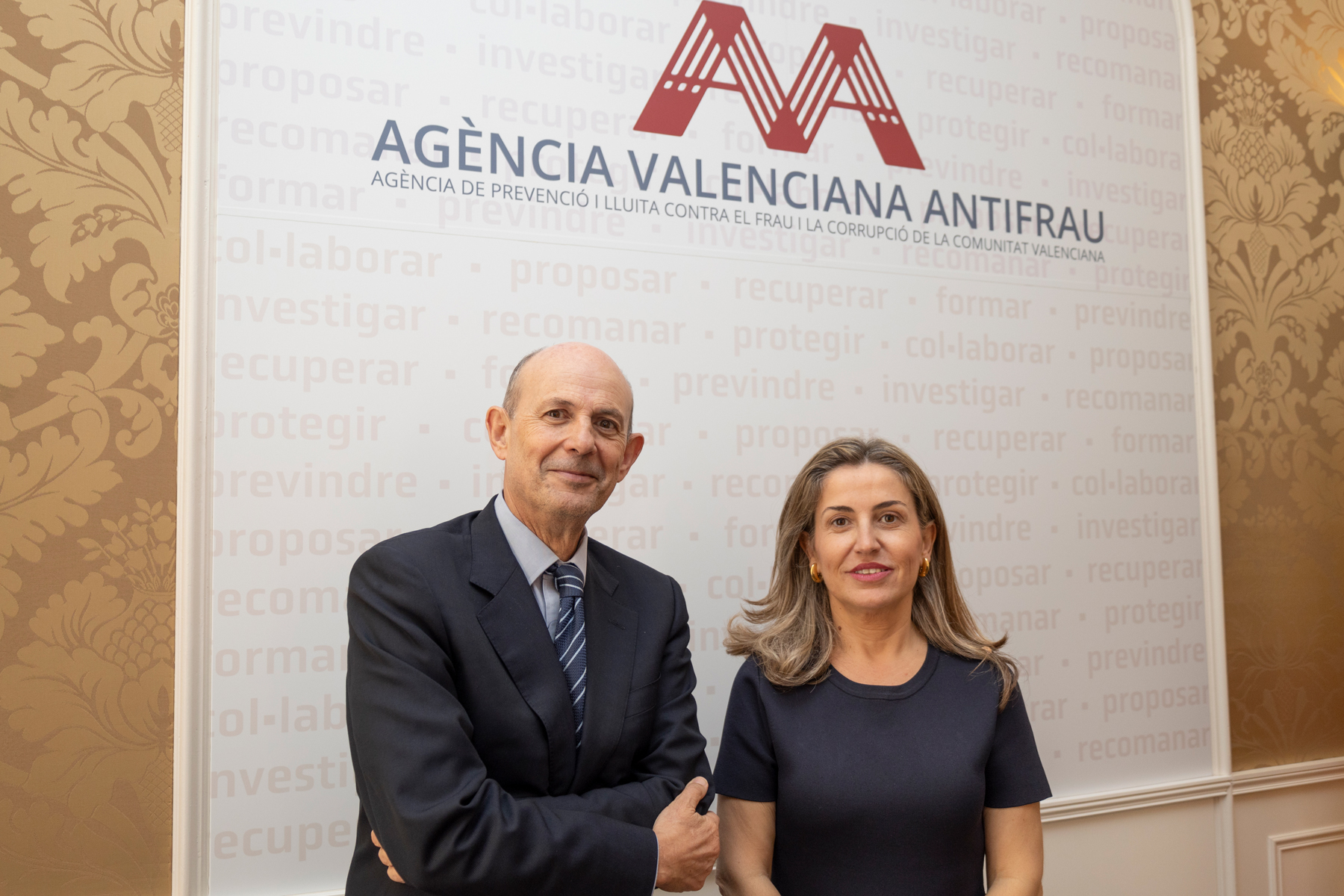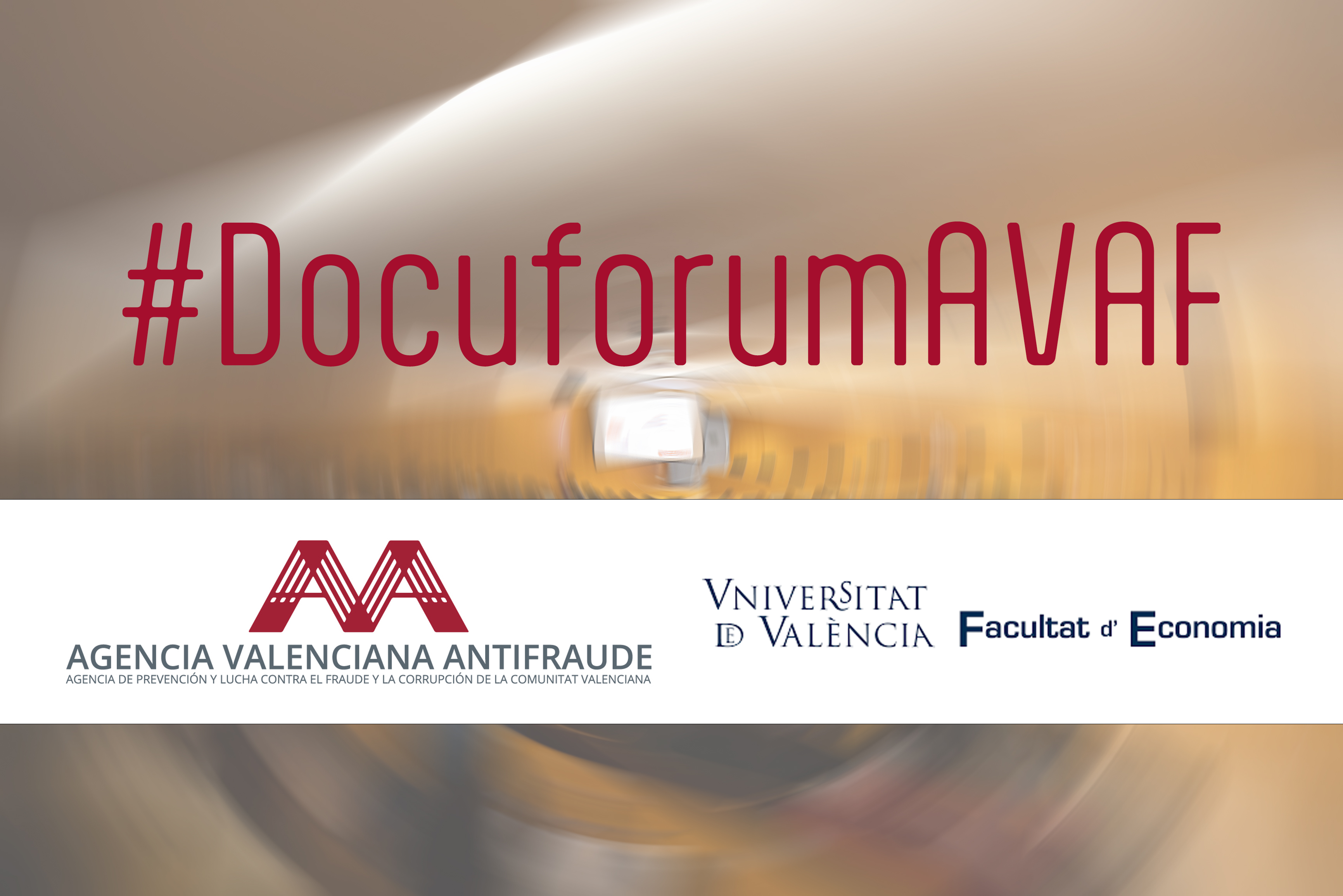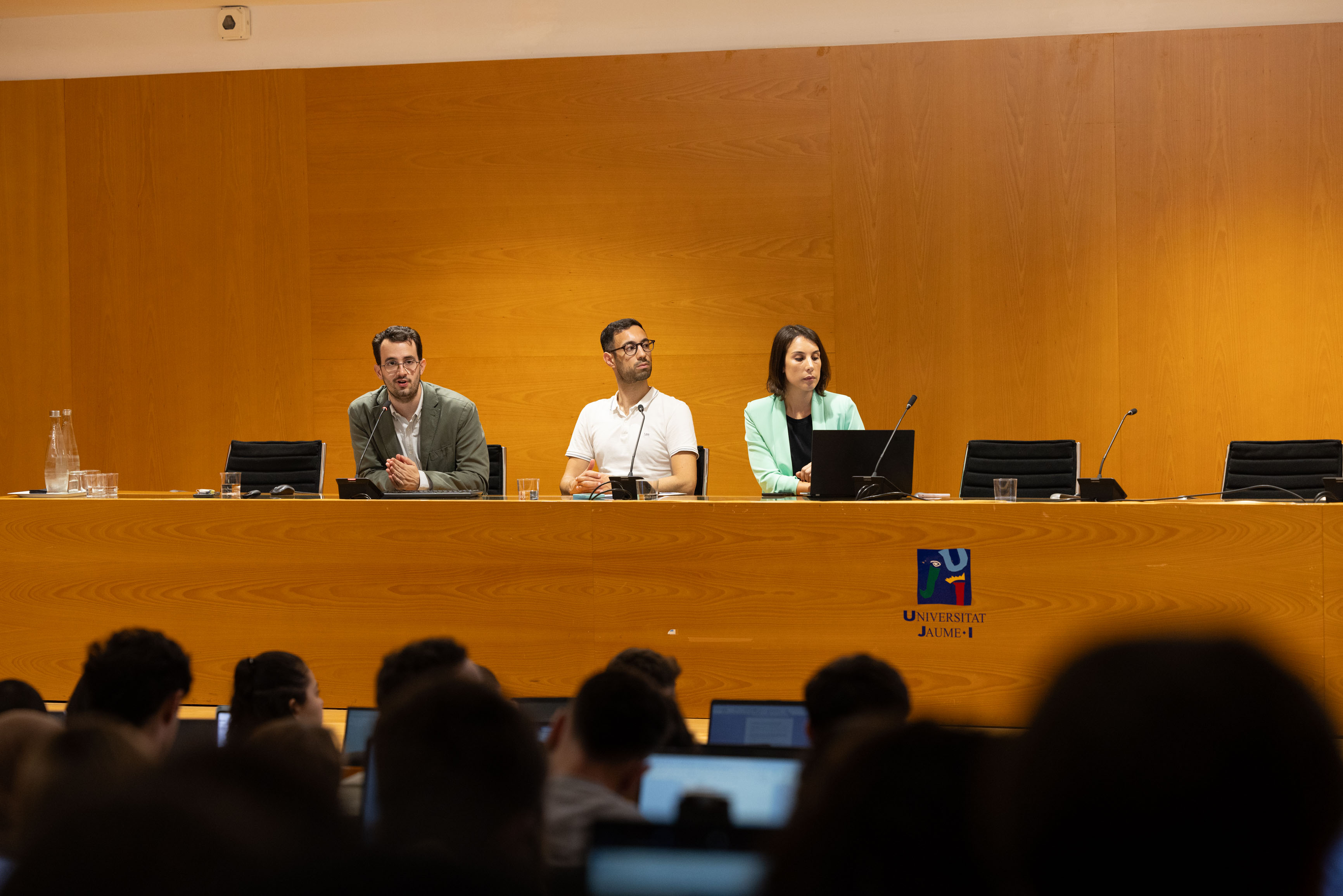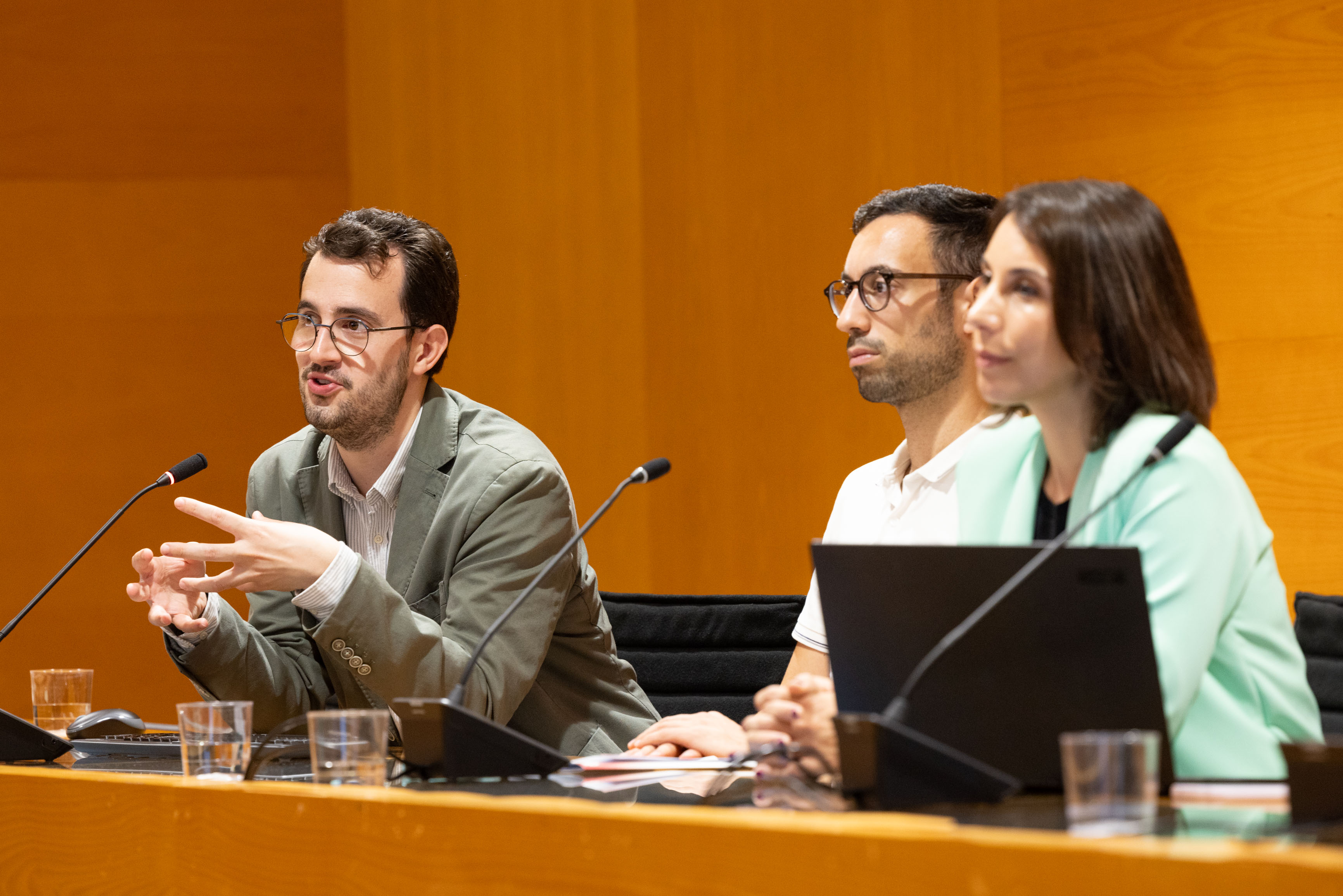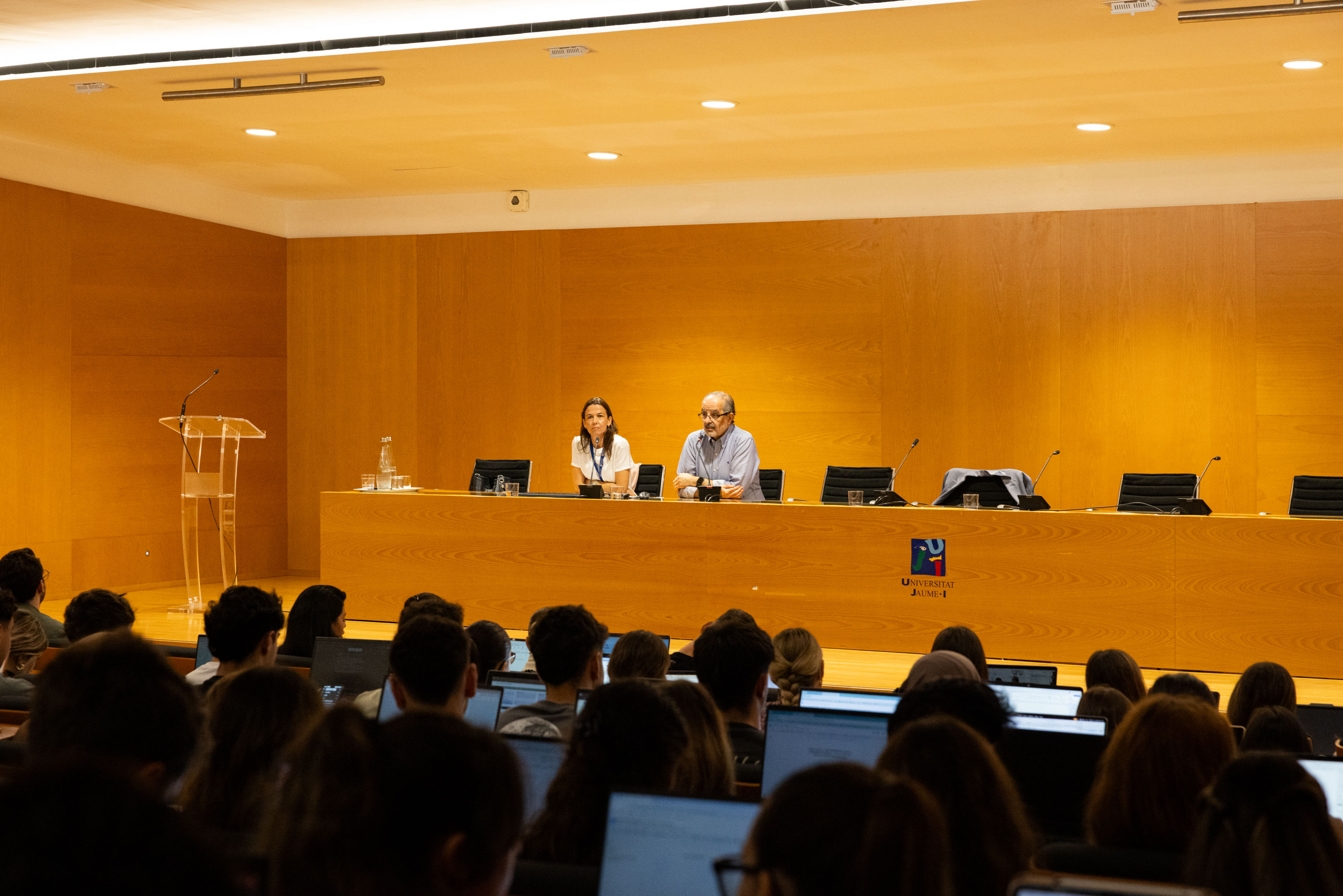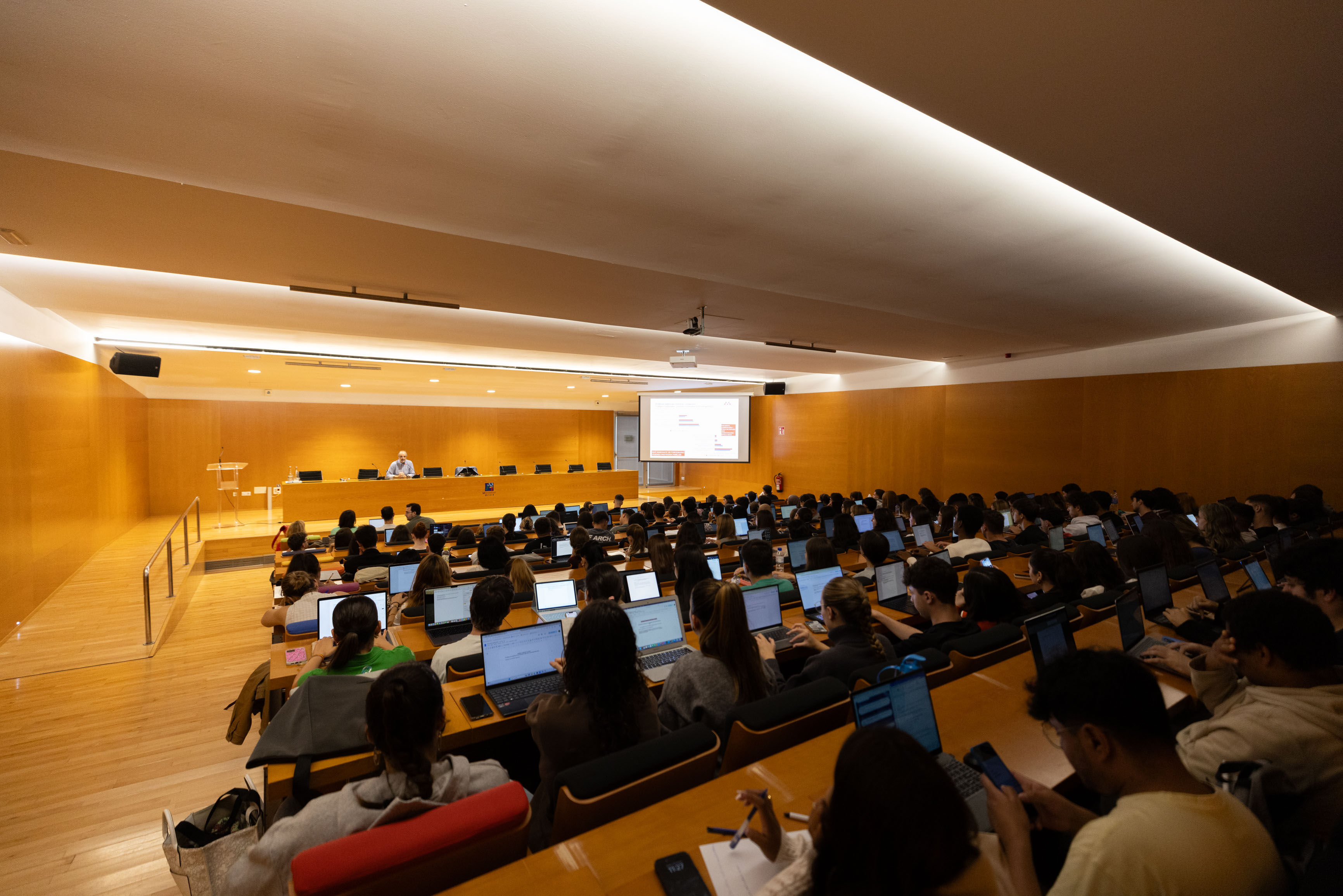Castelló de la Plana – October 15, 2024. The Public Transparency Chair of the Universitat Jaume I de Castelló (UJI), together with the Valencian Anti-Fraud Agency (AVAF), organized a conference focused on analyzing the transparency and public integrity of the transparency portals and websites of the municipalities in the Valencian Community in 2024.
On October 15, the auditorium of the Doctoral School and Social Council building at UJI hosted the two-hour event, with 160 people attending in person and online.
The event was opened by Marta Oller, a representative of the UJI Public Transparency Chair, and Anselm Bodoque, Acting Director of Prevention, Training, and Documentation and Head of the Training Service of the Valencian Anti-Fraud Agency. The Chair emphasized the importance of evaluations in strengthening public integrity in Valencia.
Anselm Bodoque, Head of the Training Service at AVAF, presented an in-depth analysis of the integrity system of local entities in the Valencian Community.
The core topic of the roundtable and subsequent colloquium was the reality of compliance with transparency and public integrity in Valencian local entities in 2024, which was discussed by several invited speakers:
– Jaime Clemente, Professor of Constitutional Law at UJI, presented the results of a 2024 study on the compliance with transparency and public integrity by local entities in the Valencian Community.
– Isaac Lara, local development agent at the Torreblanca City Council, addressed the challenges faced by small and medium-sized local entities (PYMEL) in meeting transparency and public integrity obligations.
– Pilar Moreno, a technician from AVAF’s Training Service, reflected on best practice strategies and recommendations for improving the integrity system’s visibility among local entities. Among the recommendations were the inclusion of outreach actions in the Anti-Fraud Measures Plan (PMA), involvement of all staff, incorporation of a communication plan in the code of ethics, and easier access to reporting information systems.
The event provided an opportunity to analyze the challenges faced by municipalities in terms of transparency and allowed for the identification of areas for improvement and concrete actions to advance the integrity and good governance of local administrations in the Valencian Community.
The Training Service of the Valencian Anti-Fraud Agency thanks the ongoing collaboration with the Universitat Jaume I de Castelló and their support in promoting public debate on transparency, integrity, anti-corruption prevention, and raising awareness of public ethics and a culture of rejection of fraud in the public sector, starting from the university classrooms.
If you wish to provide specialized training on public integrity and ethics for your public entity, feel free to write to formacion@antifraucv.es.
*See UJI’s press release here.


